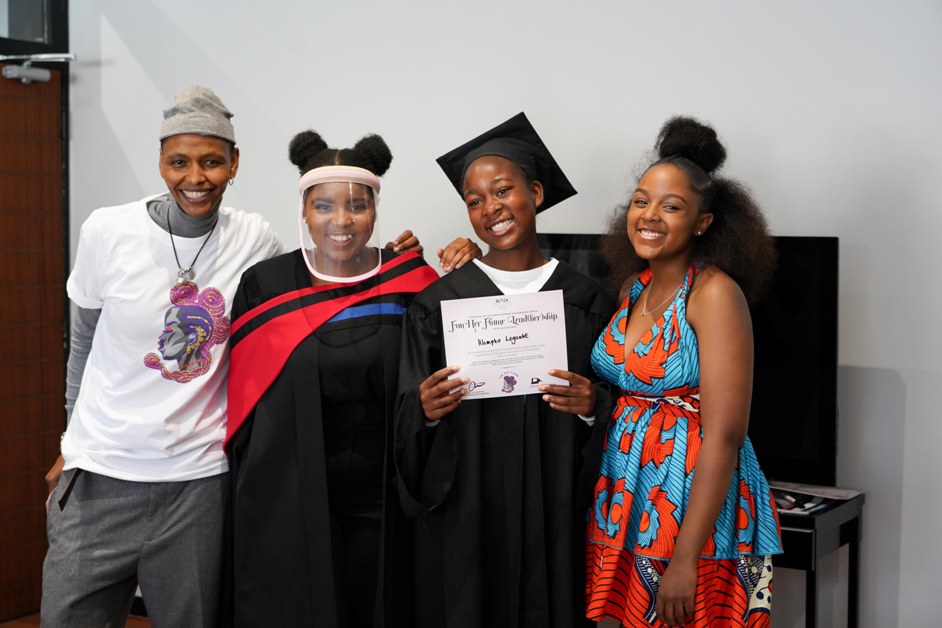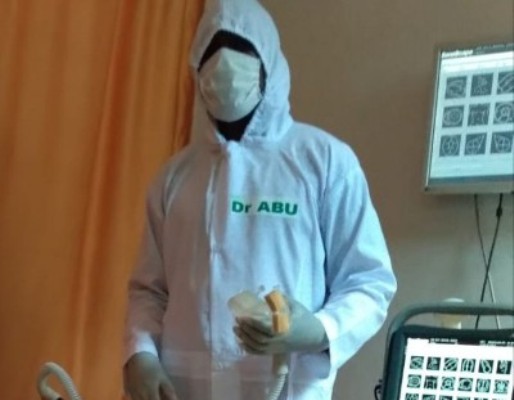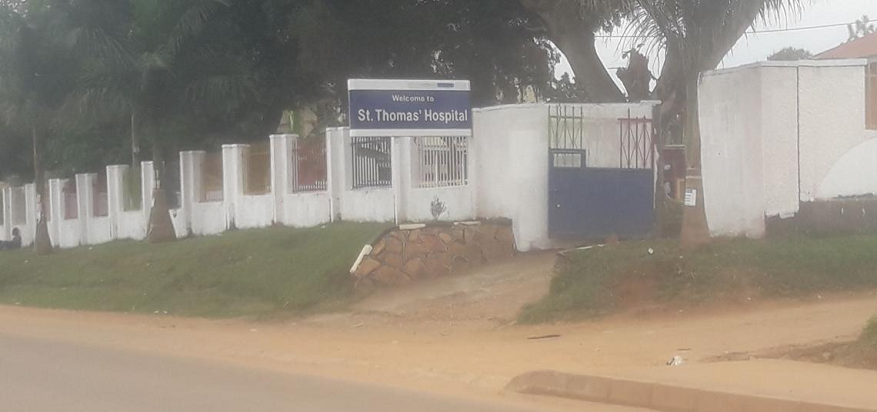Looking out over the skyline of the vibrant city of Johannesburg, one youth activist considers the work that still lies ahead to safeguard women’s rights and safety. In a country with one of the world’s highest rates of gender-based violence, Amonge Sinxoto is making sure young women are empowered to effect change in their communities.
“Globally, women’s safety remains in peril, and they often bear the brunt of gender-based violence. We need to work with young women and cultivate their talent, so they feel confident to help build a safer, more just society.”
Amonge Sinxoto is the co-founder of Blackboard Africa, a 2019 Global Teen Leader and current Allan Gray Candidate Fellow. She has lent her voice to speak on issues related to youth activism on programmes by Google, Facebook, and TEDx. And she’s only 19 years old.
In 2019, Sinxoto attended the Social Enterprise World Forum in Addis Ababa, where she met SAP Head of Global CSR Alexandra van der Ploeg. After Sinxoto shared a proposal of their plans for 2020, Blackboard Africa was awarded an SAP grant for €15,000 to help fund some of the planned activities. “Alexandra has been a mentor and helped guide us through the disruption from Covid-19 to ensure we can continue our programmes despite lockdown. She has also helped guide us as we make changes to our organisation to ensure we can continue delivering on our purpose, which is more relevant than ever.”
Sinxoto says the statistics speak for themselves: “South African women feel unsafe, bear the brunt of gender-based attacks, and often live in fear even as they contend with immense socio-economic challenges. It’s time to lean into young women and empower them to become the next generation of leaders in our country.”
Accurate figures over South Africa’s rate of gender-based violence are hard to come by, partly because most incidents are not reported. However, in one local study in 2011, data revealed that more than one in every three (37.7%) women in the country’s economic hub of Gauteng have experienced intimate partner violence. And last year, a study by StatsSA found that 43% of women surveyed reported feeling unsafe.
Blackboard Africa is a registered non-profit organisation based in Johannesburg, South Africa. The brainchild of youth activists and social entrepreneurs Amonge Sinxoto and Zingisa Socikwa, Blackboard Africa aims to bridge the leadership gap among young people aged 13 to 25 with a view to addressing Africa’s challenges.
The organisation runs a number of projects, including the Fan Her Flame leadership programme, a Boys Will Not Be Boys outreach programme for young men, and Pass The Baton, which aims to prepare young people aged 12 to 25 to overcome life’s hurdles in the pursuit of social impact.
Sinxoto and her team are currently working with two groups of girls as part of the Fan Her Flame programme, one group from Soweto and another from Alexandra township. “Many of these girls live in trying circumstances with daily battles against poverty and hunger. Despite this, the girls are incredibly bright, but their confidence levels are low. We want to inspire them to see themselves in situations where they can achieve more and make a positive change in the community around them.”
The Fan Her Flame programme takes the format of a series of workshops hosted over several weeks. The goal is for young women to understand their value, learn to better express their challenges and maximise their contribution to the development of their communities. “We want to show these young women that there is power in their voice,” says Sinxoto. “And we want to give them practical tools to help them build a better future, including planning techniques that help them set short and long-term goals that bring them closer to their vision.”

She adds that it’s important that the next generation of female leaders and role models don’t live in fear of violence and abuse. “Tackling the issue of gender-based violence requires interventions at multiple levels. Policy reform is needed to improve the structures that govern women’s rights. Police need to be trained to deal with gender-based issues and increase the intensity at which they investigate gender-based violence. And we need an honest conversation with men, many of whom continue to wage war against the women in our society.”
South Africa’s government is taking the matter seriously. It released a National Strategic Plan on Gender-Based Violence and Femicide in 2020, which features a detailed action plan built on four strategic pillars: Accountability Coordination and Leadership; Prevention and Rebuilding of Social Cohesion; Justice, Safety and Protection; and Response, Care, Support and Healing.
“The challenges are immense,” says Sinxoto. “In one of our communities, up to ten families share a single outdoor toilet. This means young girls often have to walk in the dark of night as far as 1km to use the bathroom, which puts them at incredible risk. These are not problems that will disappear overnight, but that doesn’t mean there aren’t meaningful actions we can take now to improve the lives of these young girls and inspire hope.”
To help deliver on its purpose, Blackboard Africa often works with partners and volunteers to help drive the success of its programmes. “We are always seeking more industry support, particularly to bring in relevant mentors that can inspire and guide the girls on their journey. Funding is always a challenge: some of the communities in which we work face abject poverty. You can’t learn when you’re distracted by hunger, so we work with partners to meet some basic needs within our communities.”
Global head of CSR for SAP, Alexandra van der Ploeg says young women such as Amonge and her colleagues at Blackboard Africa hold the promise of a bright future for the African continent. “Undaunted by the scale of the challenges, Amonge and the Blackboard Africa team work tirelessly to support one of the most vulnerable communities, inspiring hope and creating opportunities for meaningful change in their communities. As a purpose-led organisation, SAP is proud to support the vital work they are doing and will continue working with them to create sustainable, positive impact.”






